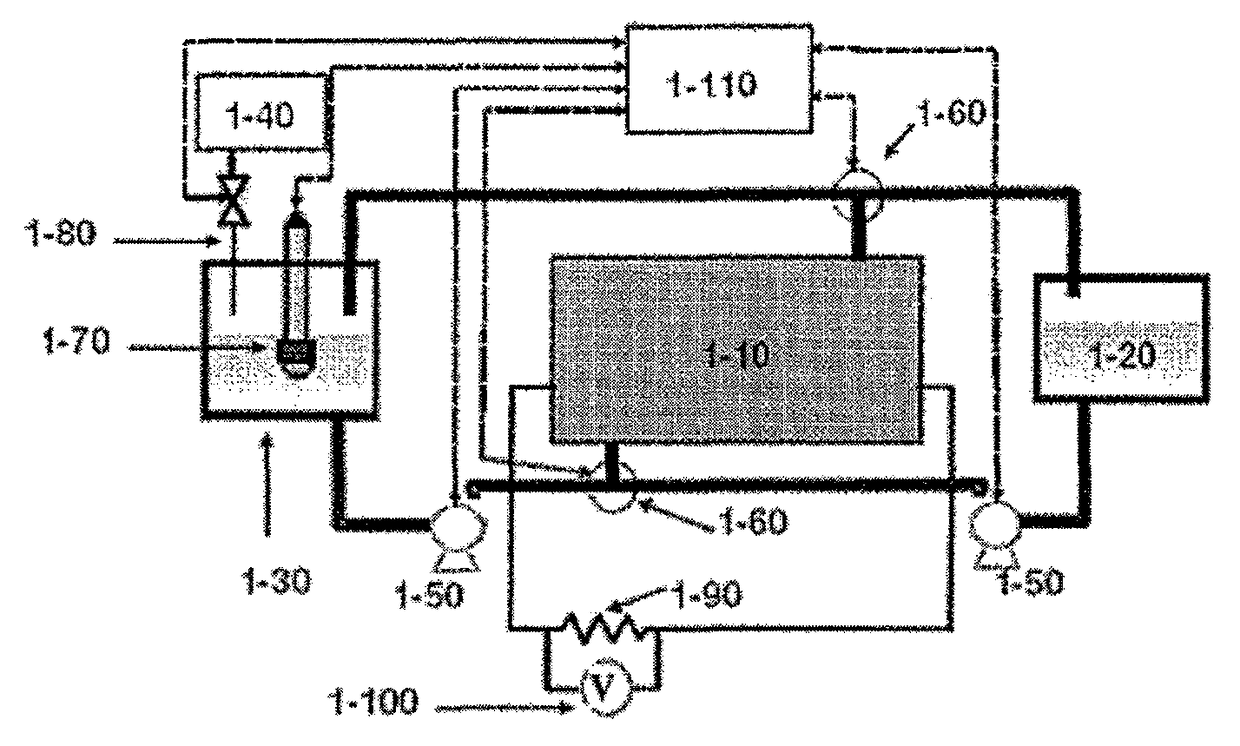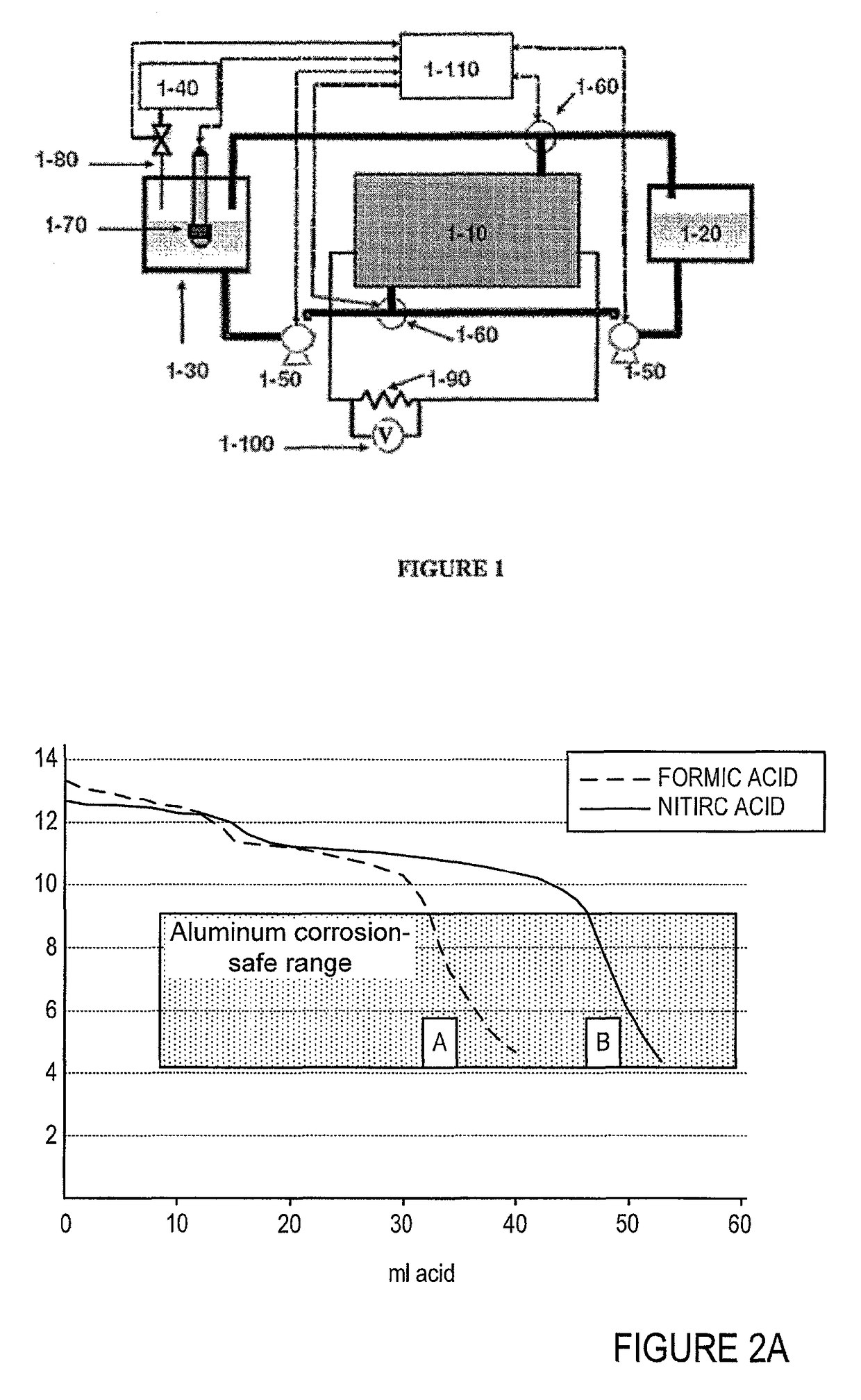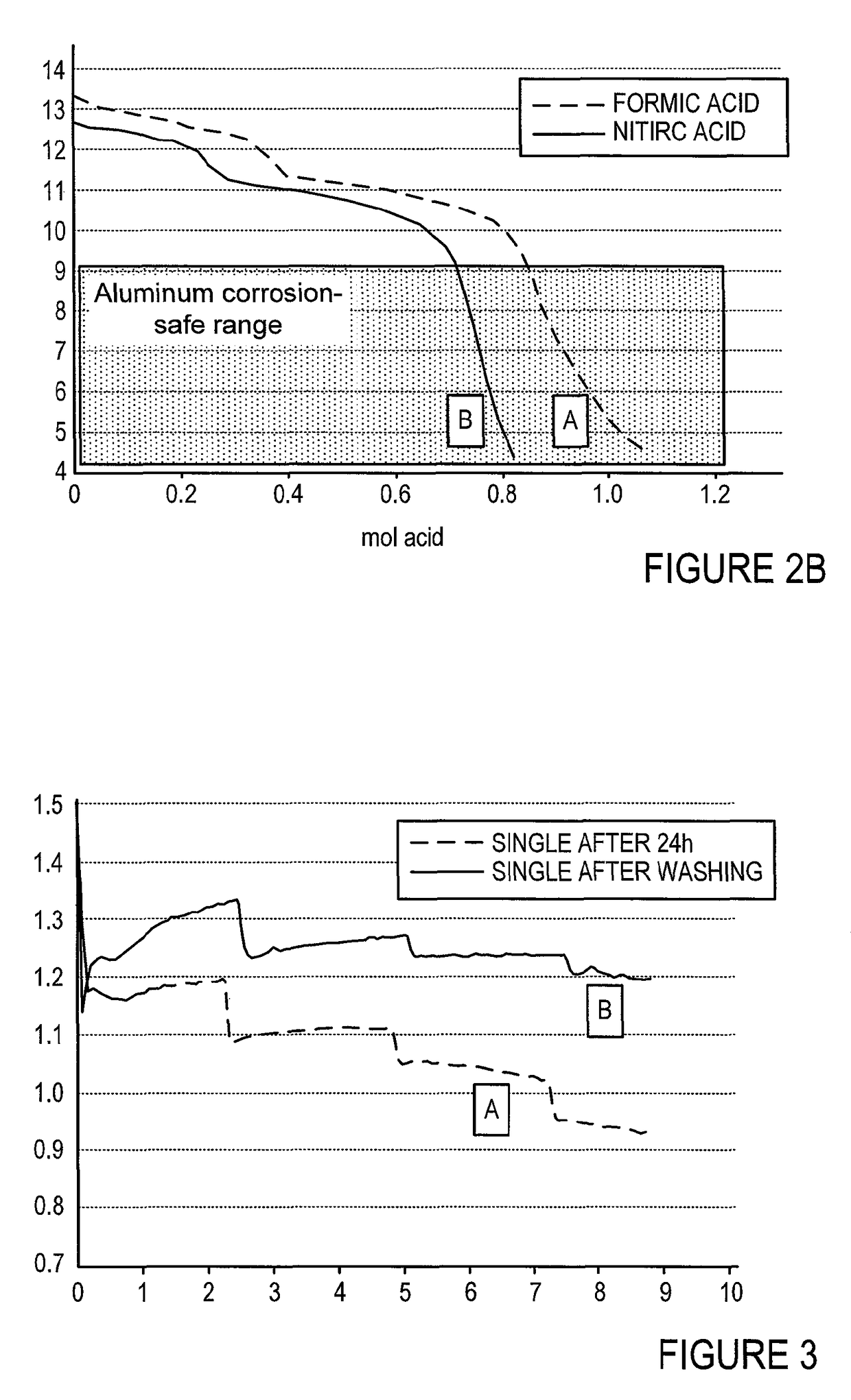Shutdown system for metal-air batteries and methods of use thereof
a technology of metal air batteries and shutdown systems, which is applied in the direction of cell components, electrochemical generators, and maintenance/servicing of primary cells, etc. it can solve the problems of aluminum at contact with alkaline electrolyte, aluminum is not readily flammable in air atmosphere, and is relatively non-expensive, so as to prevent, reduce or eliminate the degradation of aluminum electrodes, the effect of improving the life and the performance of electrodes
- Summary
- Abstract
- Description
- Claims
- Application Information
AI Technical Summary
Benefits of technology
Problems solved by technology
Method used
Image
Examples
example 1
Process Control by pH Measurement
[0088]The control of the shutdown / washing process is based on measurement of the pH of the washing solution (by signal of pH electrode mounted in the washing solution tank), and dosed addition of neutralizing agent accordingly.
[0089]A standard glass diaphragm pH electrode (Metrohm Corp.) was used. Usual glass pH electrode produces analog voltage signal of 50-60 mV per pH unit; the signal that can be easily calibrated and interpreted. Thus, in the described embodiment, a pH electrode (1-70) was directly connected to the analog input of a controller (1-50) which was programmed to control the dosing device (1-80).
[0090]FIG. 2 shows the results of a practical experiment of shutdown / washing cycle that was conducted according to the disclosed approach. FIG. 2A shows pH as a function of ml acid added. FIG. 2B shows the pH vs. the number of moles of acid added. Line A refers to a process conducted with concentrated formic acid as the acidic agent. Line B rep...
example 2
Process Control by Battery Voltage Measurement
[0094]In the case where the use of a pH electrode in the washing solution tank or container is problematic, an alternative indirect way for washing process control was used.
[0095]The washing solution functions as a weak electrolyte. The battery filled by the washing solution is able to perform a certain electrical activity. Accordingly, the voltage of the battery while connected to the electrical load was measured, enabling weak current in the range of 1-10 mA per 1 cm2 of the electrode area. The voltage of the battery under this electric load changed as a function of the change in the pH of the washing solution, and the desired degree of neutralization was set by addition of neutralizing agent until the desired voltage of the battery filled with the circulating washing solution was reached. FIG. 4 shows the results of the washing cycle. In the figure, battery voltage vs. moles of added acid is shown. The decrease in voltage corresponds ...
PUM
| Property | Measurement | Unit |
|---|---|---|
| volume | aaaaa | aaaaa |
| cell voltage | aaaaa | aaaaa |
| pH | aaaaa | aaaaa |
Abstract
Description
Claims
Application Information
 Login to View More
Login to View More - R&D
- Intellectual Property
- Life Sciences
- Materials
- Tech Scout
- Unparalleled Data Quality
- Higher Quality Content
- 60% Fewer Hallucinations
Browse by: Latest US Patents, China's latest patents, Technical Efficacy Thesaurus, Application Domain, Technology Topic, Popular Technical Reports.
© 2025 PatSnap. All rights reserved.Legal|Privacy policy|Modern Slavery Act Transparency Statement|Sitemap|About US| Contact US: help@patsnap.com



